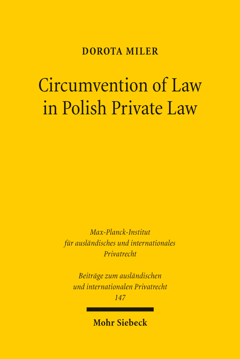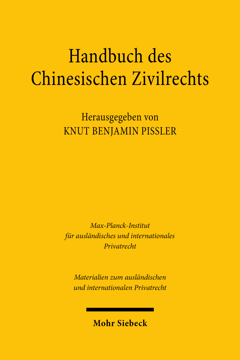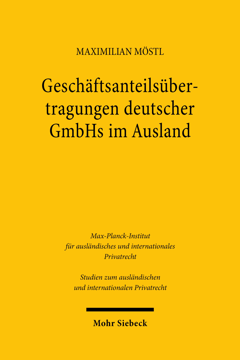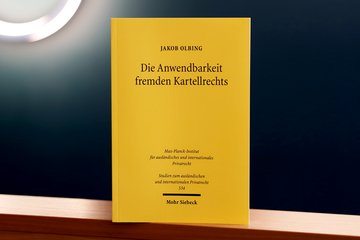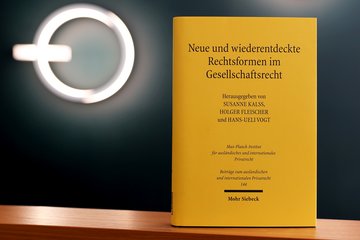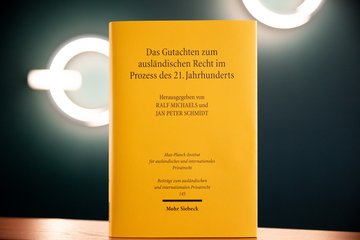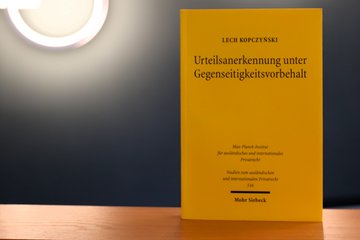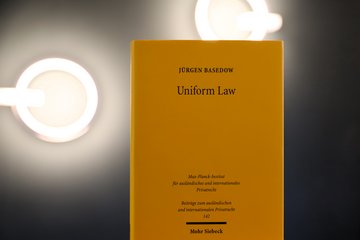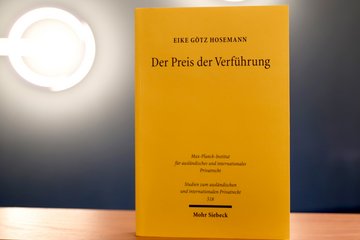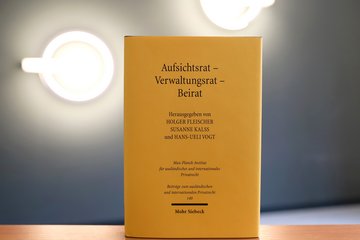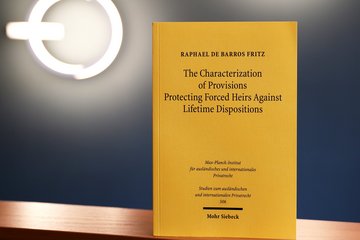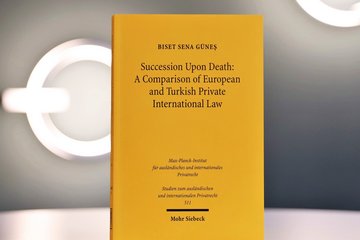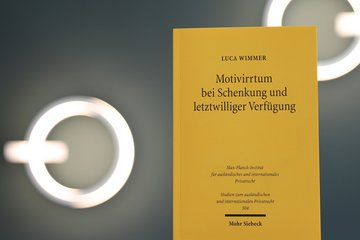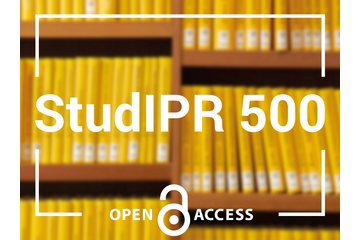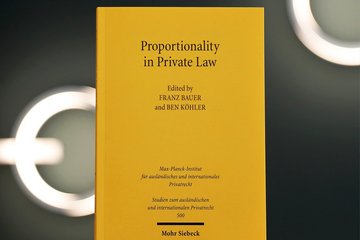Beiträge, Materialien und Studien zum ausländischen und internationalen Privatrecht – BtrIPR, MatIPR, StudIPR
The three Institute series on comparative and international private law are not limited to the publication of research completed by Institute staff. Rather, they are also open to external authors and editors for monographs and edited volumes on topics in the Institute's fields of inquiry. More and more volumes are being published open access, with the Max Planck Digital Library or the Institute's own publication fund providing financial support for Institute staff.
Aims and scope
Beiträge zum ausländischen und internationalen Privatrecht (BtrIPR)
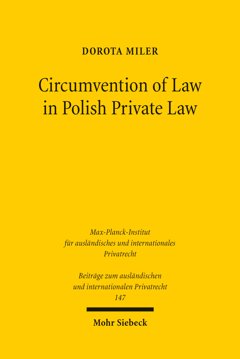
The BtrIPR series has since 1928 published outstanding and often more extensive academic literature, namely post-doctoral theses and international conference proceedings, that falls in the Institute's fields of work. The spectrum includes basic topics, such as general legal principles in European private law, and ranges from family law to stock corporation law and capital market law. The unifying feature of the texts appearing in this series is a comparative and interdisciplinary approach.
Materialien zum ausländischen und internationalen Privatrecht (MatIPR)
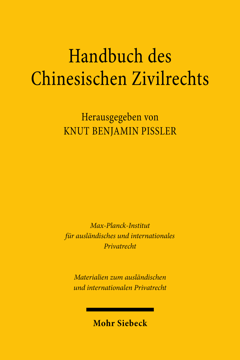
The MatIPR series, published by the Institute since 1951, primarily contains sources and texts documenting the history and reform of foreign law and private international law and also associated legal practice; in some cases, the papers presented at relevant symposia are also printed here. One aims of the series is to make widely dispersed materials, originating from different parts of the world, accessible for research and teaching. Examples of materials contained in earlier volumes includes comments on the 2020 Swiss law of obligations reform project and Chinese civil procedure law provisions that had been prepared in the form of a handbook and which featured annotated German translations.
Studien zum ausländischen und internationalen Privatrecht (StudIPR)
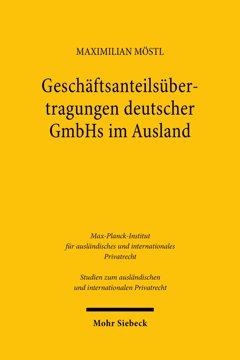
The Studien-Reihe, an offshoot of the Beiträge series, was founded in 1980 as a medium for works generally less broad in scope. This series primarily publishes outstanding dissertations, but it also includes other monographic writings and anthologies on topics in the Institute's fields of inquiry – as in the case of the Beiträge, texts will normally pursue a comparative perspective of analysis and often adopt an interdisciplinary approach.
Institutional framework
All three series are edited by the Max Planck Institute under the auspices of its Directorate (Holger Fleischer, Ralf Michaels, and Anne Röthel) and are published by Mohr Siebeck in Tübingen. They are also open to authors and volume editors who are not staff members at the Institute. Combined, the series publishes an average of roughly 20 volumes per year. It is only in the case of in-house publications that the books are typeset and made print-ready at the Institute. Each publication in the series requires its perusal and approval by the Institute's editorial department.
Procedure
Completed manuscripts that are to be published in an Institute series can be offered via the publisher or the Institute's editorial office. Publication projects can only be assessed if they are submitted together with a detailed project description featuring a timetable and a list of all contributors; in this case, only a provisional acceptance is possible, subject to the detailed examination and positive assessment of representative manuscript sections completed at a later date.
After completion of the review process and acceptance by the Institute and the publishing house, editorial supervision of the project begins at the Institute. Manuscripts are reviewed and edited here to the required extent in order to ensure – alongside the high expectations in terms content – that the Institute's series are printed with precision, ideally uniform in appearance, and free of textual errors.
Authors and volume editors negotiate the publishing contracts and all modalities of production and distribution directly with the publisher in Tübingen. Open access publication is possible and is increasingly in demand.
Supervision of all publication projects – from the receipt of proposals to provision of the Institute's approval for printing – is handled at the Institute by Christian Eckl, for all works that are set in-house with editorial support from Janina Jentz and Anja Rosenthal. English-language manuscripts authored by non-native speakers – especially in edited volumes – are reviewed by the editorial office’s native-speaking language editors, currently John Foulks and Michael Friedman.
